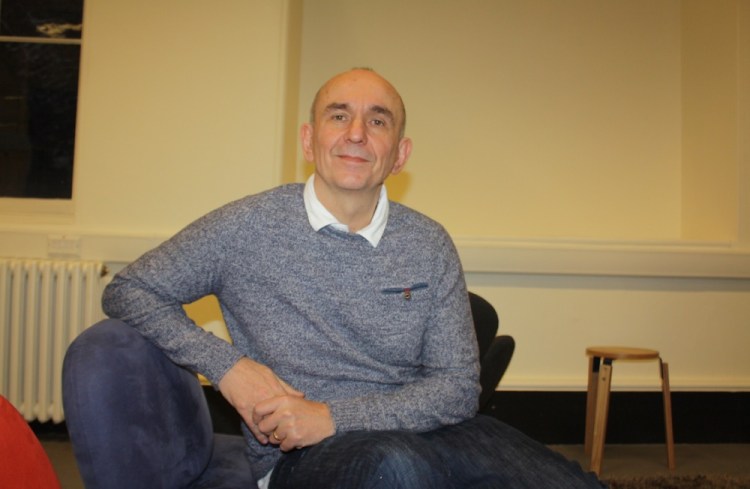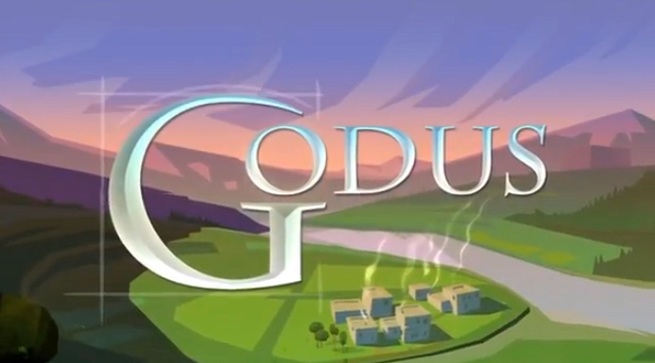LONDON — You can’t find a more seasoned elder statesman of game development than Peter Molyneux. During a decades-long career, he has created monumental works such as Black & White and Populous. Yet Molyneux admits that he was surprised by the challenges in making the leap from console games (like Fable) to mobile games. And that experience has forced him to reinvention himself and relearn how to make games in the modern era.
It started in 2012 when his startup 22cans in Guildford, England, raised $881,571 in a Kickstarter crowdfunding campaign to build Godus, a new “god game” for the touch-screen interface. Molyneux had to learn how to craft a free-to-play game that monetized well yet didn’t alienate players with aggressive marketing tactics.
Godus finally debuted just before the holiday season in 2014. Molyneux found to his dismay that players raced through content in a matter of days when he expected them to take weeks. That meant the team had to accelerate its schedule for creating new content. Over time, the team created 35 updates for Godus. The result has been “tens of millions of dollars” in revenue, Molyneux said.
22cans now has two teams, one with 22 people and another with six. And Molyneux has started making a new game, which he is keeping under wraps. We caught up with Molyneux on a recent visit to London. We met at the Playhubs game accelerator at Somerset House in central London. We talked with him about his journey, the publishing of Godus, the United Kingdom’s game industry, and his cautionary view of virtual reality and augmented reality as envisioned by the Facebook Oculus Rift and Microsoft’s HoloLens projects.
Here’s an edited transcript of our conversation.
GamesBeat: How are you doing lately?
Peter Molyneux: I’m good. It’s an incredible world to reinvent yourself in. That’s what my objective was, to reinvent myself from a console designer to starting a new business and embracing multiplatform, relearning the skills necessary to make successful games. It’s been an amazing journey.
I went with the intention of embracing things like Kickstarter and Steam Early Access and releasing on mobile, all in the end to learn this new world. If you don’t think of yourself as being someone who needs to go back to school, needs to reinvent yourself, then you’re not able to do the thing you’re passionate about. That’s to create and invent and innovate.
We did a Kickstarter game and released it, Godus. That was enormously successful. It’s had 190,000 five-star reviews, No. 1 in 54 countries, featured multiple times, released in Asia, and doing amazingly well. But what that showed me was it highlighted the mistakes I made. They’re schoolboy mistakes, but I accepted I was going to make mistakes.
GamesBeat: Did you give a speech on that? It almost sounded like a confessional.
Molyneux: Well, I’m always a bit harsh about the things I’m doing. First of all, I don’t think there is any world expert in free-to-play, all these new monetization techniques. Second, if you’re going to take something like free-to-play — if you think it’s been defined and cast in stone, it hasn’t. It has to evolve just like anything evolves.
Yes, I could have released Godus — if I had more experience I’m sure I would have done the monetization in a very different way. It still made tens of millions of dollars. I’m not complaining at all. But the opportunity was there to make a lot more.
GamesBeat: It’s a good return given the size of your team.
Molyneux: It’s been downloaded tens of millions of times. It goes on and continues to make tens of thousands of dollars a day across all its formats. That’s very exciting. But the real question for free-to-play and myself is, first, is it delightful enough? Do our consumers enjoy spending money? That sounds an insane thing to say, but it is something — if you feel incentivized to spend money, then you’re much more likely to spend it. When you do, do you feel good about what you spent it on? That’s the fundamental point where I failed. I could have put a lot more harsh gates in there and possibly could have made more money, or it could have been more delightful and people would have wanted to spend more money.
GamesBeat: How did you structure the monetization?
Molyneux: I always said, at the start of 22cans, that we would experiment. We experimented with different monetization techniques in Godus. We had some events that you could go on which were time-limited. That didn’t work terribly well. When events are bolted on to a game and not a central part of the game, they distract people from the main flow. We had the opportunity to buy one-off items, gifts for your little people. That worked a lot better. We had some of the standard approaches of monetization. If you ran out of a resource you could top that resource up. We played around with wait times.
Anyway, we did all this not in a destructive way, but hopefully in an additive way. We wanted to learn how to approach monetization in the next title. That’s what we’re working on at the moment, something called Betrayal. It’s a completely different approach to monetization. It would be foolish of me to tell you what it is without being able to show it to you, but the key point for me is, if you’re going to redefine what monetization is, if you’re going to make people excited about spending money, there are some very important things to do.
One of those things is to find a way to group people together. If I spend money on something and the people I’m with get a benefit from that thing, you’re more likely to spend money. You’re not spending it just for yourself, but for the good of all. If I can make spending money feel natural — this is one of the problems I have with things like gems. They feel an abstract away, and you’re already abstracted away once from your money. If I can make spending money feel like a natural part of the game mechanic, that’s exciting — if I can make sure that people feel like they’re investing, rather than just spending.
Lastly, and perhaps most mystically, is there an invisible way to encourage people to spend more money? We’re working on that now. It’s a long road to market these days.
GamesBeat: Do you have two teams now?
Molyneux: Yes, exactly. One of the benefits of Kickstarter is that you have thousands of people who can help you. The designer on Godus now is one of the backers from the Kickstarter campaign. We brought him in and he’s now running that team and doing a fantastic job. The main part of 22cans is just focusing on Betrayal and trying to use — it’s not just mobile, but trying to think of innovative ways of interacting with a game.



